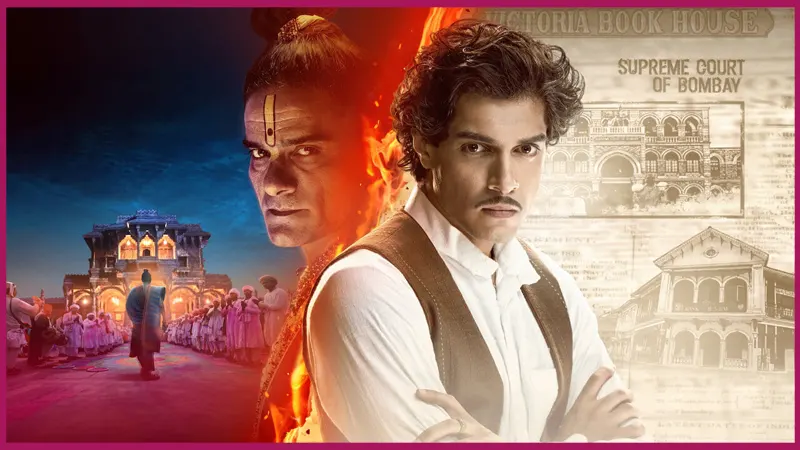The Gujarat High Court has issued a stay on the release of the Netflix film "Maharaj," which focuses on the historic 1862 Maharaj Libel Case. The film introduces Junaid Khan, the son of renowned actor Aamir Khan, and delves into the case where journalist and social reformer Karsandas Mulji accused the spiritual leader Jadunathji Maharaj of misconduct.
Karsandas Mulji, portrayed by Junaid Khan, was a fearless journalist whose accusations against the leader of the Vallabhacharya sect sparked a sensational trial. Jaideep Ahlawat plays the role of Jadunathji Maharaj, the spiritual leader accused of exploiting female devotees under the guise of religious practices. The case, tried in the Supreme Court of Bombay, ended with a landmark judgment in favor of Mulji, highlighting the crucial role of the press in challenging entrenched power structures and promoting social justice.
The controversy surrounding the film's release arises from objections by followers of the Vaishnavite Pushtimargi sect, who argue that the film misrepresents their religious practices and disrespects their beliefs. Their petition to the Gujarat High Court has resulted in the temporary stay, pending further review.
An intriguing aspect of the case is its historical ties to Prime Minister Narendra Modi. As Chief Minister of Gujarat, Modi praised Karsandas Mulji's contributions to social reform. In a blog post on Independence Day in 2010, Modi highlighted Mulji's dedication to truth and justice, noting, "Social reformist and journalist Karsandas Mulji's newspaper was titled 'Satya-Prakash'. Gujarat has accepted the path of truth as its weapon to fight all forms of injustice."
The 1862 trial, initiated by Mulji's publication of allegations in his weekly newspaper 'Satya Prakash', led to a libel suit by Jadunathji Maharaj. The trial featured testimonies from various individuals, including missionaries and doctors, supporting Mulji's claims. The court's decision on April 22, 1862, in favor of Mulji, was a watershed moment for press freedom in India, with Mulji being compensated for his legal costs.
Legal experts, such as constitutional lawyer Rajeev Dhavan, have weighed in on the current controversy. Dhavan emphasizes the judiciary's challenge in balancing creative expression with societal harmony. "The court must carefully consider the historical context and the filmmakers' intent while ensuring that the portrayal does not lead to unrest or communal disharmony," he stated.
